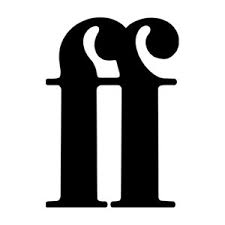 As the incredibly honoured 2013 winner of the Faber & Faber prize for Digital Innovation, I travelled down to London for an incredible two-day tour behind the digital scenes at Faber.
As the incredibly honoured 2013 winner of the Faber & Faber prize for Digital Innovation, I travelled down to London for an incredible two-day tour behind the digital scenes at Faber.
I visited three amazing departments with digital publishing at their core: Digital, Faber Factory and Marketing. And what was surprising was how digital was intrinsic to each, and yet, they were completely different.
The Digital department made the nerdish inner me very happy. Running through Faber’s app history, from the innovative The Waste Land app through its infamous Malcom Tucker and stunning Shakespeare apps, we arrived at its newest release The Animator’s Survival Kit. Faber took the teaching aid for animation and cartoon drawing by renowned artist Richard Williams and translated it into a digital format as only it could, once again breaking the mould for digital. The Survival Kit uses digital to teach, introducing features that add to the text, such as controllable animation sequences to see frame-by-frame movement, grasping a truth that not many understand: digital cannot simply be a copy of a paper product. The best bit, however, was when I got the chance to give feedback on the digital brief for an upcoming app… very exciting.
Suitably geared up from a morning in apps, I moved on to find out more about Faber Factory and its digital services for publishers. I was a starstruck in a different way, as I’d seen Faber Factory, one of the driving forces in the UK behind digitalisation among the smaller publishers, first-hand in my internship and repeatedly in my digital-focused dissertation. While gains of digital can be immense, the cost is prohibitive for small publishers, and increasingly large players in the market leave little room. And that is where the incredibly enthusiastic Factory team come in, managing, converting, and negotiating on behalf of their clients. I had a great time finding out more on what they did, and left very much convinced that one of the very few publishers offering services is doing it right.

A screenshot from Claire Jeffery’s prize-winning Jekyll & Hyde app
The next day I ventured further up the stairs to find out more about digital marketing. I’ll admit I expected to hear the usual vague buzzwords: ‘social media’, ‘online presence’, ‘SEOs’, etc. So when I actually arrived at the department it was refreshing to discover more about digital marketing beyond social media and videos. I saw how the traditional eclectic Faber was balanced with a new digital approach based on big data. Faber is one of the publishers just beginning to explore big data and it is amazing how much can be revealed. A search for my favourite author Jasper Fforde revealed key phrases, new releases, who was talking about him, which websites they visited… It was incredible and showed the impact that digital innovation is having on marketing. What I appreciated in my visit to marketing in Faber was the shift to a targeted approach based on statistics and information with the same heart and passion underneath, exactly as I’d always thought the process should be.
I saw three different sides to digital in my visit, each different and each needed. But what also really struck me was how, in little under a year through the Publishing Studies course at the University of Stirling, I’d gone from knowing a little about the publishing process to having a in-depth understanding not only of traditional publishing but also of the challenges and opportunities of digital publishing. I found myself debating all sorts of related issues with very passionate people and that was what struck me. To get into publishing you have to be absolutely passionate for what you want do. Every comma in every book, every new innovation, every campaign and every interaction along the chain is driven by people who care deeply about publishing.
On a personal note, there are a couple of things I will take away from this.
(1) Always say yes to a free book.
(2) There is only one way a literary trip to London should end: an Agatha Christie play, a visit to Baker Street and the exploration of many bookshops.
(3) Be completely and utterly passionate in everything you do.
I’d like to thank all the people from the University of Stirling and Faber & Faber who made the trip possible and everyone on the two-day tour who were so welcoming and encouraging.
Claire Jeffery now works at Prepress Projects in Perth.